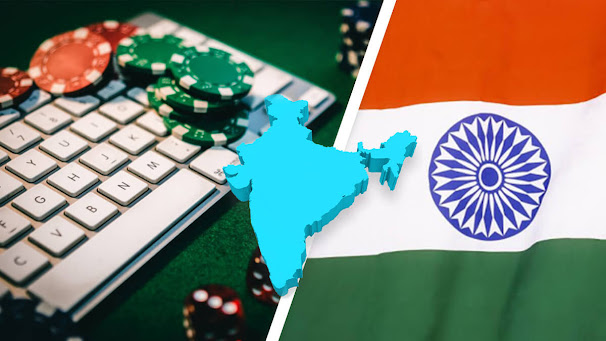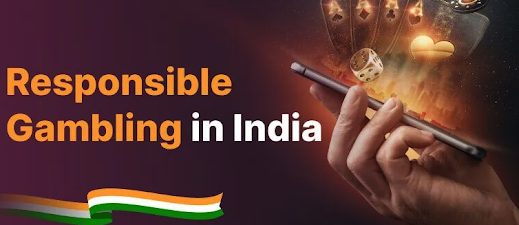MAJOR GOOGLE ALGORITHM UPDATES FOR PAGE RANK
Google comes up with new updates timely, which
changes its ranking algorithm. Some are tiny tweaks; others seriously shake up
the Search engine result pages (SERPs). Here are the most important Google
updates and their penalties rolled out in recent years, along with a list of
hazards and prevention tips for each.

1. Panda:
Launched Date: Feb 24, 2011
Goal: De-rank sites with low-quality content.
Google Panda is an algorithm used to assign a
content quality score to webpages and down-rank sites with low-quality, spammy,
or thin content. Panda assigns “quality score” to web pages; which is then used
to determine the rank factor in SERP.
Hazards: Duplicate content, Plagiarism, Thin content, User-generated spam,
Keyword stuffing.
Precaution
from being Penalized: Do regular site audits to make
sure no duplication issue of contents exists. Check for Plagiarism because
panda algorithms also trigger the external duplications of the contents. For
this, a tool called “Copyscape” can be used to check for the external
duplication of the contents. If you run an e-commerce site then its a better
idea to use & post the original images of the product. For thin content;
avoid using an inadequate amount of unique content on a page having low word
count, filled with ads, affiliate links, etc. providing little original values.
Never do keyword stuffing for optimizing a certain page and pay attention to
keywords in Title, Meta description, Keywords in body and Keywords in the H1
tag.
2.
Penguin:
Launched Date: April 24, 2012.
Goal: De-rank sites with spammy, manipulative
link profiles.
Unlike Panda this algorithms works in real time;
which means that penalties are applied much faster than Panda algorithm, and
recovery also takes less time. It down-rank sites containing unnatural link
profiles through regular audits with a backlink checkers like SEO SpyGlass.
Hazards: Links coming from poor quality, "spammy" sites,
Links coming from sites created purely for SEO
link building (PBNs), Links coming from topically irrelevant sites, Paid links
and Links with overly optimized anchor text.
Precaution
from being Penalized: Use SpyGlass tool to check any
unusual spikes in your link profile, and always look into the new links you
acquire. If found sudden influx of toxic backlinks towards your site then just
get rid of those harmful in accordance with penalty risk.
3. Pirate:
Launched: Aug 2012.
Goal: De-rank sites with copyright infringement
reports.
This update was designed to penalize the sites
that have received numerous copyright infringement reports. Particularly,
torrent sites that made pirated content such as movies, music, or books that
are available to visitors for free.
Hazards: Pirated content, High volume of copyright infringement reports.
Precaution
from being Penalized: Avoid distributing the content
such as movies, books, or music without the copyright owner’s permission.
4.
Hummingbird:
Launched: August 22, 2013
Goal: Produce more relevant search results by
better understanding the meaning
behind queries.
It is a major algorithm change, that deals with
interpreting search queries and providing search results that match searcher
(one who is looking for the information) intent, rather than individual
keywords within the query. From these updates onwards the use of synonyms has
also been optimized; instead of listing results with the exact keyword match
and adds more strength to the meaning behind the query as a whole. There are several companies that work relying under such updates such as Digital Marketing Toronto, verified Google partner in Canada.
Hazards: Exact-match keyword targeting, Keyword stuffing.
Precaution
from being Penalized:
It's a good idea to focus on related searches,
synonyms and co-occurring terms to diversify your content, instead of using
short-tail keywords. Find the language that your audiences use to reach to your
contents and include them optimizing in the title and meta description of your
websites. Try using long-tail keywords to find your specific/exact audiences.
5. Pigeon:
Launched: July 24, 2014 (US).
Goal: Provide high quality, relevant local search
results.
With arise of Pigeon Google's Algorithm, it
created closer ties between the local algorithms and the core algorithms, so
that it uses location and distance as a key factor in ranking the results.
Hazards: Poorly optimized pages, Improper setup of a Google My Business page,
NAP inconsistency, Lack of citations in local
directories (if relevant).
Precaution
from being Penalized:
Optimize your pages properly, like local
businesses now need to invest a lot of effort
into on-page optimization. Set up a Google My
Business page so that it would be your first including in Google's local Index,
then verify your ownership of the listing and make sure of categorizing the
business correctly with using local area code in the phone number associated
with your locations.
Make sure of using consistent NAP across the
local listings, because Google will be looking at the websites that have been
linked from Google My Business page and cross reference the name, address, and
phone number of your business.
Get featured in relevant local directories such
as Yelp, TripAdvisor, Bhetincha, etc.
6. Mobile
Friendly Update:
Launched: April 21, 2015.
Goal: Give mobile-friendly pages a ranking boost
in mobile SERPs, and de-rank pages that aren't optimized for mobile.
In this update, those sites which are designed to
be mobile friendly are optimized to be at the top of mobile search. Mobile
friendliness is a page-level factor, meaning pages that are mobile friendly are
ranked up while the rest may fail to rank at the top.
Hazards: Lack of a mobile version of the page, Improper viewport configuration,
Illegible content, Plugin use.
Precaution
from being affected: Try to make or design your site
mobile responsive for improving page rank while searching from mobile devices.
7.
RankBrain:
Launched: October 26, 2015.
Goal: Deliver better search results based on
relevance & machine learning.
In this update, the algorithm identifies the
relevance features on the pages in the index and arranges the results
respectively in SERPs. RankBrain is a machine learning system that helps Google
identify the meaning behind the queries, and provide the best-matching search
results in SERPs.
Hazards: Lack of query-specific relevance features.
Only include the relevant contents inside a
content topic or primary keywords, so that it lessens the bounce rate of your
web pages, as a result, prevent downranking.
8. Possum:
Launched: September 1, 2016.
Goal: Deliver better, more diverse results based
on the searcher's location and the business' address.
This algorithm works ranking your web page
depending on the physical location of the searcher (the closer you are to a
certain business physically, the more likely you'll see it among local results)
and the phrasing of the query. Meanwhile, businesses that share an address with
another business of a similar kind may now be de-rank in the search results.
Hazards: Sharing a physical address with a similar business, Competitors whose
business address is closer to the searcher's location.
Don’t share a physical address with a similar
business, and try expanding the use of local keywords.
9. Fred:
Launched: March 8, 2017.
Goal: Filter out low-quality search results whose
sole purpose is generating ad and affiliate revenue.
This updates majorly targeted the ones that
violate Google's webmaster guidelines. However, the vast majority of affected
sites will be content sites like blogs, having low-quality articles with the
purpose of generating ad or affiliate revenue.
Hazards: Low-value, ad-centered content and Thin, affiliate-heavy content.
Precaution
from being penalized:
Review the Google Webmaster guidelines and Google
Search Quality Guidelines to keep your site safe from Fred algorithm. Try
auditing your site for thin content, and update the low-quality, low word count
pages with relevant, useful information.


Borgata Hotel Casino & Spa, Atlantic City - Mapyro
ReplyDeleteAddress: 구리 출장마사지 3131 S. Atlantic City Blvd. 남양주 출장샵 Atlantic City, NJ 08401. 전주 출장마사지 Rooms: 아산 출장마사지 1 - 성남 출장안마 8 of 733 Phone: (609) 317-5000.